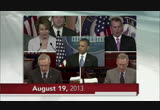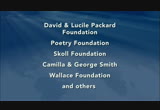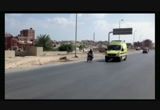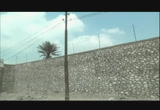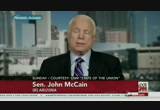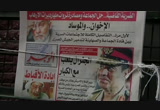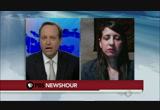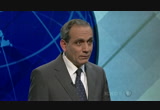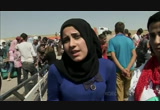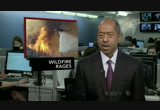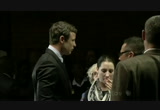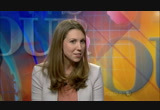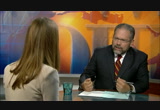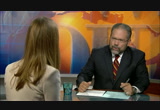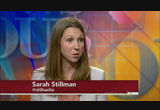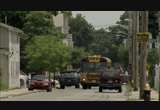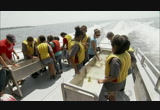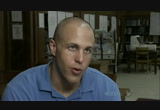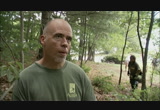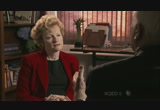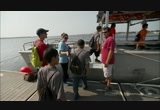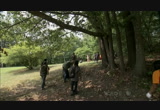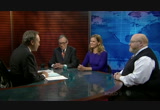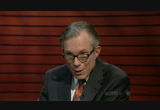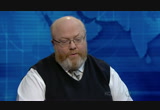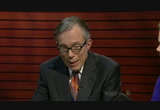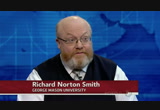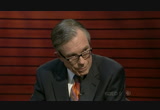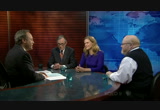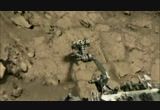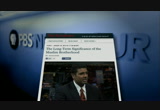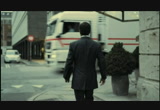tv PBS News Hour PBS August 19, 2013 3:00pm-4:01pm PDT
3:00 pm
captioning sponsored by >> woodruff: an egyptian court said today former president hosni mubarak could soon be freed from jail. good evening. i'm judy woodruff. >> brown: i'm jeffrey brown. on the newshour tonight the news about mubarak comes as the death toll in the current surge of violence nears 1,000. we have an exclusive interview with egypt's ambassador to the u.s. >> woodruff: then, can the police seize your cash your car, even your home if you're detained? we talk to the reporter who investigated the practice for the "new yorker" magazine. >> brown: what's the problem with washington? we kick off a series on governing and leadership. tonight, three historians on partisanship and gridlock in the nation's capital.
3:01 pm
>> woodruff: and in an age of budget cuts, the u.s. space agency must rein in its orbits of exploration. we take a closer look at nasa's uncertain future. >> nasa for years has had a flat budget. >> woodruff: that's all ahead on tonight's "newshour." >> major funding for the pbs newshour has been provided by: >> and by bnsf railway. >> and with the ongoing support of these institutions and foundations. and friends of the newshour.
3:02 pm
and... >> this program was made possible by the corporation for public broadcasting. and by contributions to your pbs station from viewers like you. thank you. >> brown: the situation in egypt took another volatile turn today with news that former president hosni mubarek might be released from prison. this comes amidst continuing violence, this time with mass shootings on the sinai peninsula. peninsula. a state of emergency remains in please stand by for captions.
3:04 pm
3:05 pm
3:14 pm
any egyptians are being killed. as far as i'm concerned one egyptian that is one too many. we have to look at in in an objection way. when people are attacked that -middle of unfarmed demonstrators, there's going to be a gun fight and people are going to get hurt. if it was up to the muslim brotherhood leadership to a decision that they will not use weapons. >> is there a place for the muslim brotherhood in the government in the current government or is it better in
3:15 pm
the muslim brotherhood to be eliminated? point very clear.-there is room for egypt in egypt for all egyptians. there's room. this is not a struggle for one side to eliminate the other side this is n objective of the egyptian people or the egyptian -government. we have in our government in the new government a minister who is -- to talk with all the parties and to allay with a reconcilia this is the objective. there's a political process in -place. the muslim brotherhood were invited to participate in the government, to have ministers in the government. they were invited to participate -forward.-we cannot keep on in this vicious cycle of recommendations
3:16 pm
we have to look forward we have to look toward the future. reporting in the last few days, particularly in the "new york-times" yesterday, about the great lengths that u.s. officials at the highest level went to to persuade general al sissi and other government leaders not to use this massive force. why were the pleas of so many others not heeded? >> again the objective was not to use mastif force the objective was not to get anyone the objective was to apply the rule of rule. you had in those areas where you have the sit-ms. youins, people who -have been killed foreshould, you have bodies surfacing. you have people who have been left for dead and somehow they miraculously survived and they
3:17 pm
told their story. how could the government just stand aside and say we're going bringing on there and to continue to break the law there. mr. ambassador is the u.swe just heard the spokes woman a the state department, they are that the u.s. provides to your country, military aid $1.3 billion should be continued. a new poll out today says most americans believe it should not -continue. your country? this so many times let me say it one more time. the u.s. assistances assistance to egypt is part of a strategic partnership that serves both countries enormously. it's a win/win situation. so basically we would like it to continue to be a win/win situation particularly since we agree on the objective. we have the same objective.
3:18 pm
we want to see a democratic system in place in egypt. we do not want to see christians attacked, being treated that they're being prisoners of wars, churches run down museums museums being attacked. we want to have a flourishing country, a democracy a country where every individual can feel free can have human dignity. this is what we're working towards. and this is what we are going to achieve. whether the aid continues? comment on the decisions of the united states government. assistance is of use and is of tremendous importance to both sides. >> ambassador mohamed we thank you for being with us.
3:19 pm
>> woodruff: still to come on the newshour, police seizing your cash, car, and even your home; a history of governing gridlock; nasa's future; and a downsized space mission. but first, tther news of the day. here's kwame holman. >> holman: the number of syrians streaming into iraq has grown dramatically in the last five days. they are mostly kurdish refugees believed to be fleeing attacks by al-qaeda fighters involved in the syrian civil war. the u.n. reported some 30,000 such refugees have entered the kurdish region of iraq. the u.n. set up an emergency transit camp in the iraqi town of irbil to house the new arrivals. they bring the number of syrian refugees in iraq to nearly 200,000. >> we left syria because the situation is getting worse and -our young brother was sent after us telling us to come to the -tanquetanqueissue a region. we came before but each time they told us we couldn't cross because the borders were closed. >> holman: the u.n. high the high commissioner for refugees has commissioner for requested thousands of tents and refugees h requested thousands of other supplies from jordan that tents ander supplies
3:20 pm
are due to arrive by the end of from jo the week.rdan that are dew to arrive by thent of the wee heavy monsoon rains spawnedk. the flooding severe flooding across parts of the philippines today. across parts the downpours drenched the capital city, manila and today. several nearby provinces killing at least three people. killing at least three the torrential rain, people. streng strengthened by a passingthen by a passing tropical storm, turned manila's tropical -storm streets into waist-deep rivers. turned manila the flooding forced the closing streets into of schools, businesses and waste deep embassies. rivers, the flooding forced the closing of schools businesses and embass ease. in the u.s., a wildfire raged in the u.s. a wild fire raged across central idaho today. across central idaho today. some 2300 hom some 2,300 homeowners near theeownersr the resort communities of resort communities of sun valley sun and ketchum were forced to valley were forced to evacuate. evacuate.-the blaze which was sparked by lightening nearly two weeks ago the blaze, which was sparked by lightning nearly two weeks ago now has scorched about 160 square miles. 1,200 firefighters are battling the fire. it is 8% contained. even as the idaho fire burned, so far 2013 is shaping up to be the second mildest fire season of the last decade.
3:21 pm
lyme disease is ten times more common than previously thought according to the centers for disease control and prevention. doctors report about 20,000 to 30,000 illnesses a year, but a c.d.c. survey shows as many as 300,000 americans actually are diagnosed annually. lyme disease is caused by bacteria transmitted through the bites of infected deer ticks. if diagnosed early it can be cleared by antibiotics avoiding potentially severe symptoms. oscar pistorius, the double amputee olympian, was indicted in a south african courtroom today on a charge of murdering his girlfriend a year ago. in court for the indictment, he wept openly before the proceeding. prosecutors said witnesses heard a woman screaming before shots were fired, which contradicts pistorius' account. he said he believed he was shooting at an intruder. his trial is to begin in march. same-sex weddings took place across new zealand today, as it became the 15th country to allow
3:22 pm
them. about three dozen couples exchanged vows in both traditional and nontraditional ceremonies. one couple was married on an airplane at 39,000 feet after winning an airline promotion. new zealand's same-sex marriage law was enacted in april and took effect today. gary knell, the president and c.e.o. of npr-- formerly national public radio-- is moving on after less than two years on the job. knell succeeded vivian schiller, who resigned after a former npr fund-raising executive was caught on camera accusing the tea party of being "racist." knell plans to leave in late fall to run the national geographic society. trading was light on wall street today as investors await clues about the federal reserve's future bond-buying plans. the dow jones industrial average logged its first four-day losing streak of the year dropping more than 70 points to close at 15,010. the nasdaq fell 13 points to close at 3589. those are some of the day's
3:23 pm
major stories. now, back to jeff. >> brown: next, a story about the increase in police seizures of personal property, in the name of fighting crime.now crime. ray suarez. >> it's the forfeiture. the seizures have long been a tool in the fight of illegal drugs and the program is an enormous money maker for local police departments. new yorker staff writer sarah wrote a lengthy and revealing report for the magazine and joins me now. sarah, let's start at the beginning. -what is civil forfeiture, how does it work. >> enough people are familiar forfeiture. if you're profiting from crime, let's say you're a big drug king pin and you got your malibu mansion and your gulf stream jet with the proceeds of your crime then those things will be taken away from you. that make a lot of sense again to people but many folks are unfamiliar with the idea of civil forfeiture which is actually a case brought against directly against the piece of
3:24 pm
be proven guilty of a crime to be taken away. and many of the conventional protections that you have under the criminal process are not afforded to the in the civil forfeiture case. no requirement to provide evidence to prove the state's suspicion, they just take your -stuff. >> exactly. -you don't even have the right to so conventionally if you're facing the loss of your home or normally at the very least you would have someone that's able to represent you in these claims. you have to even pay dksz $2,500 simply for the right to contest -the case. you're not entitled to representation when you do that. so it could be a very costly process and also very confusing arduous process to figure out. ->> people probably sitting at home and saying but how could this happen, doesn't the constitution forbid the government seizing your property without due process. ->> right.
3:25 pm
and there are a lot of constitutional arguments that and people have argued for instance the 8th amendment protks againstprotects against excessive fines for things like a case i looked at in philadelphia where a family lost their home, a couple, an elderly couple, a man struggling with cancer and it was found that his son had allegedly sold $20 pert of worth of pot on the porch to a confidential informant they're not faced with any crime but the homeowners are facing the potential loss of-their home. >> people probably recall seeing news conferences with very proud local law enforcement show off cars show off boats show off houses, the things they've gotten as the fruits of investigation. when did this become a common tool in use by police -departments across the country. >> it's interesting there's
3:26 pm
forfeiture has its origin. at the very very beginning of our country when they needed a way to go after pirates who had -these vessels that the owner may be all the way in europe so let's just go out to the ship, we can't get the guy who owns the ship which made sense. but it really fell by the wayside, not until the one drugs took off in the 80's and come threagan years did, it become common for police -- legislation was written that allowed police to actually in many cases keep things you mentioned and actually use them, funnel them back. ->> your report indicated that it's pretty hard if you're caught in this, if you're a citizen whose been stopped by a county sheriff or something to -fight back, to get your property, your cash back from a law enforcement agency, yes. i think it's important to emphasize that these are all vary tremendously from state to state.
3:27 pm
like nothing entitled to a lawyer and also with the idea that often you have maybe 20 days to contest or 30 days to contest and if you can't figure out how to do so in that time period it's automatically seized, so many people simply by default. the moment they find cash in -your glove compartment or tv in your trunk. often these are, your reporting indicates either poor or working class people with no access to attorneys under banked or unbanked. sophisticatedly work the system. >> yes. -that was a big surprise for me looking at this is that the law is really to go after king pins or mafia people or wall street conmen who in those cases you're able to take the proceeds and give them in some cases back to victims which again is a very appealing idea. instead i've often seen cases
3:28 pm
very petty drug crimes or cases where people actually haven't been proven to commit any crime at all but simply had cash that they claim was maybe going to buy a used car or they were paid in cash for whatever reason and simply were pulled over on the side of the street. in some cases were even told in a case i mentioned in texas the main case i write about in the told you can take your money and go on down the rode if you find a way or we will press money laundering charges and take your >> has anybody successfully fault back against the seizure of the property without trial and without due process.->> absolutely. one of the surprising things is actually when people did get it together to push back, often the cases were just dropped. -it was indicated this is really often prying apart people who
3:29 pm
didn't have the resources to or had reasons to be scared to. did bring a case including after this happened to perhaps hundreds or even thousands who were stopped in the program there very small town mostly people driving through in rental cars from out of state. they actually brought a settlement in class action lawsuit recently. >> very interesting read. sarah stillman from the new york. -thanks a lot. >> thanks for having me on this show. >> woodruff: now, a second look at what some schools are doing to make sure students don't lose ground during the summer. the newshour's special correspondent for education john merrow, reported last summer about efforts in rhode island to reduce the academic gap between the wealthy and the poor. >> summer is a time when kids get to go to camp, travel with
3:30 pm
their families, explore museums. it's also a time when social and economic inequities are evident. children with low income communities miss out on these stimulating opportunities. -they spend summer break in their neighborhood hanging out. ->> i don't do a lot of mat in matt -- math in the summer. >> the kids who stay home and watch tv, they don't do much. >> the difference in summer experiences has serious consequences. -even indicators call it summer learning loss. children who don't have stimulating summer experiences forget more of the math matt reading -skills before school starts. by the time summer ends the gap between rich and poor is wider than it was in june. was summer school the answer. >> when kids hear summer school -they hear loser failing. more school in an air conditioned building. >> typically summer remediation
3:31 pm
programs are held in the classroom. and practice math and reading skills for hours at a time. in many districts including providence rode island, this type of learnin wasn't working. >> we could have remediation until the cow came home, and one substantial numbers of kids didn't attend. -and too two, it wasn't effective. ->> providence is trying to change that by turning summer school into an experience that turns summer classroom learning -this summer 716 low income students enrolled in summer scholars, the program for middle school students. the program which includes transportation and two meals a day is free for kids, but cost about $1200 per student. about half of the money comes from private sources and the school district funds the rest.
3:32 pm
at a time when 20% of districts across the country have eliminated summer school, providence has redirected its summer remediation funds and is trying something difference. sixth, seventh and aid grairtsz spent two mornings a week in the field with an instructor from a local organization like save the day, and a teacher from the district who ensures that students are practicing skills they struggled with during the year and need in the fall. in the afternoons, it's back to the class room. -there, teachers like matthew pierce create lessons to help students dpeapen deepen their understanding of lessons they learn in the field. especially middle school or high school level they will not they'll just shut down on you if you don't do something fun and >> let's see if we'll make it float.
3:33 pm
if you add salt, make it dense enough it will float. in the field and try what they learned back in the classroom to solve complex problems. this is what educators call deeper learning. the summer scholar's program is a partnership between the school district and 30 local organizations like the zoo the -ymca and the audubon society. public schools often work alone but providence has been building these relationships for years. >> this is the not-what we're trying to do is get rid of it let it know it's not taking over here.->> today's students are learning about invasive species. rick taylor has been teaching in providence for 17 years. we could say they're just pulling weeds but in reality they're also learning concepts -they can bring back into school during the school year that will -help them. -terms like biotic, abiotic
3:34 pm
what's the difference between an environment and a habitat. -you could read about that in a textbook or even actually go into the field and learn it first hand. i think that first hand experience actually doing it makes a dramatic difference. >> we do math like circumference diameter but we have fun with it -because you get to explore outside instead of like sitting inside and having a teacher teach you about it and you still don't know how to like do it. >> hands-on learning is actually not a new idea. john dewey wrote about it over a hundred years ago. montesorri schools do it every -day. because educators here were not happy with the results they've teaching. terrific scores. >> don't your kids need remediation instead of this summer fun.->> i think the kind of drill and
3:35 pm
remediation that might lead to a temporary bump in scores is not the kind of education really any parented for his or her child.->> i think that's a branch from a tree. i don't think we're going to get that out. what i've seen is tremendous children get them more actively involved and engaged. this program is very different from the traditional classroom setting. >> it's kind of cool because lot of fun. >> superintendent lucy says -programs like this are one way to level the playing field. ->> our students who never viewed providence or even their neighborhood, i think people under estimate what the experiences and interactions that middle class children tend to have, how that e quiz kids to engage with education.
3:36 pm
organized but very fun way to arrive at those types of opportunities. the evaluation show that students who attended these programs have better engagement in their classes and bet grades particularly in math. >> in the afternoon students participate in activities like basketball computers art and dance. it may have felt like camp to some but even these activities incorporated learning into it. students weren't the only ones >> i'm learning to relate to children in a much different way. i like the way that i've been very different from what i would do in a normal setting. ->> i have teachers say to me we need to figure out a way to make school look more like this.-i think we have to get better and better at giving kids opportunities to apply their learning in ways that are interesting, as well as
3:37 pm
informative. >> the obvious goal to the summer scholars program is to curb snur summer learning loss but this way of teaching might change the way providence schools approach teaching and learning all year long. >> brown: now, the problem of governing in america today. these days it's unusual for a pollster to find anyone who's happy with washington, and politicians themselves regularly air their frustrations. we begin our series of conversations examining this phenomenon with some historical perspective from beverly gage of yale university; former senate historian richard baker co-author of the new book, "the american senate"; and richard norton smith of george mason university. >> welcome.->> thank you. ->> start us off here. in your historian's hat, what do you see going on in washington today. how would you describe it. >> i think some of what's going on in washington at the moment
3:38 pm
is stuff we've seen before in the past. we tend to romanticize past periods as being provocative beautiful periods. we look back in the laws for past things for the right laws it's been very very messy.-that said i do think we are seeing a particular level of dysfunction that is different from what they've seen before and in many ways is a little bit more extreme.->> we'll pick that up but first richard baker you looked at this one substitution where you many years in the senate. do you see a clear evolution devideodevolution. there are times of great heart burn, hurt feelings and then were going to pull themselves out of the hole and pass some reform legislation and move on into the future. the mid 1970's, the senate maybe
3:39 pm
coming out of the nixon era pass some significant legislation, war powers legislation, budget legislation and also reorganize their committees so every member of a committee could hire his or her own staff member. -committees? that immediately fragmented the committees which used to be the sources of great power in the senate. -now we're at an era where the power rests with the fluoro -leaders and not the committee chairman. >> richard, we talked many times about the evolution of the -presidency vis-a-vis congress, right. ->> well, it's funny. maybe the biggest thing maybe the biggest single difference between 40 or 50 years ago i do think of the 60's or the 70's when the presidency was in some ways paramount. no one would confuse that with an era of good feelings, it was a tumultuous time and a time of
3:40 pm
extraordinary legislative and governmental productivity. >> what's different. themselves. party was a broadly conservative party. liberal. but reach party was a coalition. so there were javits republicans. in you were a newcomer to the various times ted kennedy and bob dole say to me, the advice -they were given when they first arrived here the bob develop said go spend some time with senator eastland from mississippi and ted kennedy said dick russell. the fact is, you were within your own party caucus how to deal with people with whom you fundamentally disagree and that -in turn was great preparation -for the larger senate and indeed
3:41 pm
the larger body politics. that's gone. we now have a rigidly conservative and rigidly liberal party. >> what about you look a lot at -political engent and civic action right. how has that changed and how -does that fit into the kind strife that we're talking about here in washington. table, as they would say in the senate my friends here, my distinguished friends and colleagues. that if we want to make sense of what's happening now the moment to look back to when a lot of these things against change is the 60's and 70's, and this was a moment when many people on the right and on the left looked at what they would have described as the washington establishment and said this isn't responsive enough to the people. and they thought there were a number of ways you could go about dealing with thatment one
3:42 pm
is by having parties that were more identify identify identify low lujly consistent with them. -one is having the primary session and what actually matters coming out of the crises of the 1968 democratic convention in particular. were initiated as real democratic reforms and were things that people on the left throughout the 1970's, i thi now have lid to led to a very very -combative situation and one that nobody really intended. >> part of that especially thinking as you were talking about the reagan era of moving towards calling for smaller -government. government, i don't want to say disgaining government but calling on the government all the time. here they come to only institution called congress which basically means coming -together. -and you hear people saying well, if i can't get my own, anybody
3:43 pm
to agree with immigration legislation, i'm going to take it off and do it on my own. where are you going to do it on your own. this sense of we're going to talk past each other. you mentioned the party caucuses earlier and the fact that they were quite heterogeneous. the fights would take place -behind closed doors and they closed doors with a uniform position. now, they're more homogeneous party caucuses because the democrats from the south became republicans. and so we have a much less diverse democrat party. and of course then you add the media and all that. i mean to get ahead of the story. atmosphere of course weighs into it. or 50 years ago, whether or not it was a golden era there was a mainstream media and this were gate keepers. everyone knew what it was. those walls have come down. the internet has removed those
3:44 pm
walls. cable tv, cable news and talk radio thrives on the fringe. but the way you get noticed in this town overnight is to say something outrageous. that has had i think an enormous impact for the 24/7 news cycle. we have to feed the beats beast every day. all of that i think is affecting this. i think the, i mean to get back to the notion of liberals or -conservatives, there's on, let's be honest, there's also a real libertarian movement in this country, which is not limited to the tea party. if you're on the left, you have lots of reasons to suspect government. you didn't like iraq, you didn't think katrina was responded to very well. you don't like the nsa revelations. if you're on the right distrust of big government has always
3:45 pm
been an article of fate. it's not just cynicism and it's not just media exploitation, there is a genuine reaction against in part philosophically incompetence of government. >> what about the idea or ideal of a public good that has run through our history? much of their time contemplating this idea of a public good, trying to set up a situation in which partisan impulses, internal impulses, regional impulses state impulses in which all of these lab will be tamed down now where it will function -and produce later legislators that will act in a 1345u8 public good.-this is the republican idea originally and of course that's worked better and less well over the years since. i think what we really lost now
3:46 pm
is a conversation about it. i mean it's sort of been taken for granted that this doesn't partisan warfare in washington, at least having mor gestures toward the public. >> you got a very brief last word here on that. >> i want to introduce campaign finance back in those earlier days. -all you had to do to be elected to the senate was to convince your state legislators to vote for you, and that was it. now we have in the case of -nevada with harry reid's last election it cost his campaign $69 per vote in terms of expenditures. unimaginable even 20 years earlier. >> all right. well do you know what, we've put conversation series. thank you all three and we'll continue this series. >> thank you.
3:47 pm
>> woodruff: now, the future of the u.s. space program and the many questions surrounding it: the mission, the money, and the politics. >> more than two years ago they shuttle atlanta's touch down for space center. shuttle had its place in history and has come to a final stop. >> the landing marked the end of a more than three decade long -error youera for the shuttle program that came with trips to the moon. the man's space flight has not been the 10e8 vocal pointed. power telescopes have revealed new insights about thousands of potential planets. atastronauts still do research on the international space station. robotic rovers on mars have beamed back images and information about the red planet's surface.-but facing budget cutbacks and political pressures, that nassau now
3:48 pm
faces a loosming question, what comes next. >> we'll start by sending astronauts to an asteroid for the first time in history. >> in a 2010 speech on space exploration, president obama the space program heated the call and recently launched allegeasteroid redirect mission an ambitious program to capture a small asteroid. nasa is already at work on the orion and the space launch system, new designs for man space exploration. joel is looking at all of the questions connected to nasa as part of a new series by the washington post. the first article ran this week project called mission improbable. -joel joins me now. why mission improbably. newshour. here.-this is a challenging situation
3:49 pm
for nasa. if you're the agency, where are you going to go, what were you going to do. this is a question that's been foesedposed really for decades now. we want to go to mars but that's really hard. it would be very expensive, it's -very challenging technically to >> far away. >> it would cost many billions of dollars. the current policy of the united states is to go to an as as troitd, this is the 2010 national space policy. an asteroid. what i didn't know until i did my research, my reporting on this, to go to an asteroid would take about a year. even a near earth asteroid. -you always think well where are they. sun. they don't come close to the earth but they're moving at different speeds. any trip to an asteroid would take a long time. nasa doesn't have the hardware -to do that, doesn't have the and so they've come up with this
3:50 pm
fall back plan which is to bring the asteroid back to orbit around the moon. >> is that even possible? >> yes, it's possible. i mean will it actually happen. -that's a good question. that's what we looked at. a lot of the scientists say we don't have a good target. if you look at the near earth asteroids the ones you might potentially go grab. >> that are out there or orbiting the sun. ->> they orbit the earth as the sun does. it can't be spinning too rapidly, it can't be tunneling it can't be like a loose bag of rocks, can't be too bigger too small. so it can't be moving too quickly, too rapidly relevant to-so to find a target rock, they haven't found one yet. they don't have their target rock yet. that's the first challenge is which rock are they going to grab as they try to do this. >> you write in the article about there's disagreement in -the nasa in the science, the
3:51 pm
space community about whether >> it's not the most popular mission nasas ever proposed. the space scientists they have a every ten years they do a survey -what are our top priorities. >> not even on the list. >> this is not really considered of a technology-driven cape bill type of mission to do something like this. more importantly it gives a destination for this newate new rocket they're building and in a spaceship. called owe iranian that will go on this rocket called the fls the space launch system. where is this rocket going to go. it president bush said go back we'll build a big rocket, build the orion capsule and we'll build lander. obama killed that back to the
3:52 pm
moon program saying we've been there, we've done that. this is a big debate. should we go back to the moon or not. where people want to go is mars. an argument could be made to go but in the meantime we still have this big rocket and this space capsule. the mission where you capture this rock and orbit it, capture it and do an eba, a space walk with a couple of astronauts and bring samples back. a lot of moving parts though. we call it mission improbable to gamble this is really going to happen based on nasa's timetable. >> it's all caught up on this question of what is nasa's mission now going forward.->> yes. what is nasa trying to do. what's the point of this is. this is an agency that's done incredible things.
3:53 pm
and some day maybe nasa will lead an international effort to put people on mars. that's the goal that everyone wants to do. short of that maybe get people to orbit around mars. shore of that maybe somebody can go to a near earth asteroid. this is one step behind that. this is exg acompellingexamining a rock. >> is it more than that.->> it's very difficult it's want to do it safely and do it the way nasa does it which is the presumption is our -- are astronauts going to come home align on this mission. nasa for years had a flat budget, now declining a little bit so an argument could be made -that they have to do really difficult things but have not been given the money to do it. ->> joel, fascinating first epsinosa and we'll be looking
3:54 pm
for what's next in the series. >> thank you judy. >> thank you. >> brown: again, the major developments of the day. a court in egypt said former president hosni mubarak could be freed by the end of the week... the death toll from violence in egypt neared a thousand. and the stream of syrian refugees into iraq in the last five days reached 30,000. >> woodruff: online, we recently published seven tips to keep you out of the nursing home. well, viewers responded with tips of their own. kwame holman tells us more. >> holman: they're called "life hacks," dozens of simple ways to make life easier, from installing automatic night lights to using a shower chair. read our reader-submitted ideas and add your own on our health page. plus, get a sneak preview of the upcoming "pbs newshour weekend." watch anchor hari sreenivasan's first rehearsal, including a live interview from cairo on our home page. all that and more is on our web site newshour.pbs.org.
3:55 pm
>> woodruff: and that's the newshour for tonight. on tuesday, we'll look at president obama, the sports fan. >> brown: and i'm jeffrey brown. we'll see you online and again omorrow evening. thanks for joining us. good night. >> major funding for the pbs newshour has been provided by: moving our economy for 160 years. bnsf the engine that connects us.
3:56 pm
>> and with the ongoing support of these institutions and foundations. and friends of the newshour. and... >> this program was made possible by the corporation for public broadcasting. and by contributions to your pbs station from viewers like you. thank you. captioning sponsored by macneil/lehrer productions captioned by media access group at wgbh access.wgbh.org
3:59 pm
>> this is bbc world news. funding of this presentation is made possible by the freeman foundation of new york, this dough vermont and honolulu newman's own foundation, giving profits to charity for over 30 years. and union bank. >> at union bank our relationship managers work hard to know your business, operate -- offering special expertise and tavis solutions for small businesses and major corporations. what can we do for you? >> and now bbc world news.
4:00 pm
>> there are more than 1 million cars in the world today. by 2015, they could be up to 4 billion. what we do with them all? where will they go? >> and as people get richer in brazil, russia china, they want the trappings of success and for many, that includes a car. what can we do about it? and can the car itself become a tool for cutting congestion and pollution? how about a car that could fold up and use less space?
389 Views
IN COLLECTIONS
KQED (PBS) Television Archive
Television Archive  Television Archive News Search Service
Television Archive News Search Service 
Uploaded by TV Archive on

 Live Music Archive
Live Music Archive Librivox Free Audio
Librivox Free Audio Metropolitan Museum
Metropolitan Museum Cleveland Museum of Art
Cleveland Museum of Art Internet Arcade
Internet Arcade Console Living Room
Console Living Room Books to Borrow
Books to Borrow Open Library
Open Library TV News
TV News Understanding 9/11
Understanding 9/11
